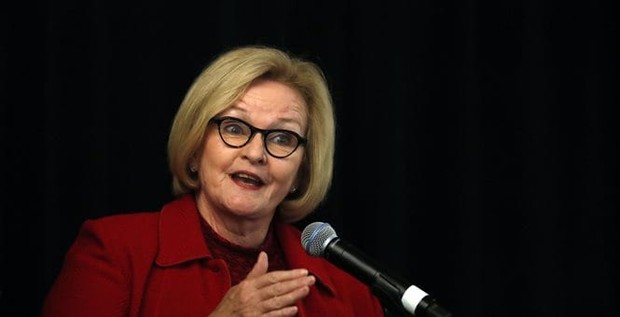
Incumbent Democratic Sen. Claire McCaskill of Missouri speaks during a candidate forum at the annual Missouri Press Association convention Friday, Sept. 14, 2018, in Maryland Heights, Mo. (AP Photo/Jeff Roberson)
Former US Senator Claire McCaskill (D-Mo) may be an analyst for MSNBC at present, but she’s not afraid to share her analysis and expertise on Twitter, as well. McCaskill, a former prosecutor, made an interesting point this morning regarding the impeachment process and the notion of the “whistleblower” being identified or produced to testify:
Anyone who has actually been in a courtroom knows the prosecutor(House managers) must produce evidence to prove their case to the jurors(Senators). They have no obligation to produce the tipster (whistleblower) who started the investigation.
— Claire McCaskill (@clairecmc) November 7, 2019
“Anyone who has actually been in a courtroom knows the prosecutor(House managers) must produce evidence to prove their case to the jurors(Senators). They have no obligation to produce the tipster (whistleblower) who started the investigation,” she wrote.
My interest was immediately piqued, for I am one of those fortunate (?) souls who has “actually been in a courtroom.” Quite a bit, as a matter of fact. On a weekly basis for the past quarter-of-a-century, to be specific. Never as a prosecutor, I should mention, and rarely in the context of criminal proceedings, but I don’t believe I’m boasting to claim more than a passing familiarity with courtrooms and procedural and evidentiary rules.
In any event, I was intrigued by the likening of the “whistleblower” to a “tipster” rather than a material witness. I think of a “tipster” as one who “tips off” authorities that they may want to investigate a certain situation or individual; who provides “tips” — small tidbits of information — to them. I really don’t know that I’d consider this 7-page, detailed complaint, complete with a 2-page appendix, a “tip.” That’s a tome. And it’s formed the basis of proceedings to remove a president from office. Which is no small thing.
But since the Senator was invoking her litigation experience and attendant procedural and evidentiary rules to make a point (presumably that the whistleblower need not be identified, much less called to testify), I felt compelled to test the logic. Thus, if we’re going to look at this through the lens of a criminal proceeding, it seems to me that the basic constitutional protections afforded all criminal defendants ought be in play, as well. For instance, the Sixth Amendment, which provides (emphasis mine):
In all criminal prosecutions, the accused shall enjoy the right to a speedy and public trial, by an impartial jury of the State and district wherein the crime shall have been committed, which district shall have been previously ascertained by law, and to be informed of the nature and cause of the accusation; to be confronted with the witnesses against him; to have compulsory process for obtaining witnesses in his favor, and to have the Assistance of Counsel for his defence.
So, I responded to Senator McCaskill:
By the same token doesn't a defendant have the right to confront/cross-examine his accuser? https://t.co/TIAjulk6yG
— Susie Moore (@SmoosieQ) November 7, 2019
“By the same token doesn’t a defendant have the right to confront/cross-examine his accuser?”
That called to mind another question, since we were invoking courtroom procedure:
Also by that same token, should hearsay evidence be inadmissible? https://t.co/rlEA7MpZP8
— Susie Moore (@SmoosieQ) November 7, 2019
“Also by that same token, should hearsay evidence be inadmissible?” Because, you know, with certain, very specific, exceptions, it is in criminal (civil) proceedings. If we’re going to apply proper courtroom procedure, we should certainly abide by the rules of evidence.
Which brought me to the larger point:
Lastly, are we agreeing that this matter is to be tried as if it were in a court of law? Or is it to be tried in the court of public opinion? Because that determines which set of evidentiary rules ought apply, no? https://t.co/9IJQVJM2DF
— Susie Moore (@SmoosieQ) November 7, 2019
“Lastly, are we agreeing that this matter is to be tried as if it were in a court of law? Or is it to be tried in the court of public opinion? Because that determines which set of evidentiary rules ought apply, no?”
That’s what this all ultimately boils down to, right? Is the impeachment of Donald J. Trump going to be treated as a legal proceeding, with proper procedural and evidentiary rules to be followed (as Senator McCaskill implied by invoking the reference to courtrooms and prosecutors and jurors)? Or is it going to be treated as a political proceeding? (I think we know the answer.) My colleague Bonchie provided a nice analysis of the precedential effect of this sort of proceeding earlier today: Impeachment Without a Crime May Be Legal, but It’s a Terrible Precedent to Pursue.
I’ve not yet heard back from Senator McCaskill (though she was kind enough to respond the other evening when I initially misread her tweet about NCAA basketball), but I know she’s busy living her best life.
One year ago tonight I lost a big election. My love to my family, my dear friends, my former staff for making this year wonderful! And thanks to NBC and @MSNBC for the new gig! #freedom pic.twitter.com/JdycavV00t
— Claire McCaskill (@clairecmc) November 7, 2019
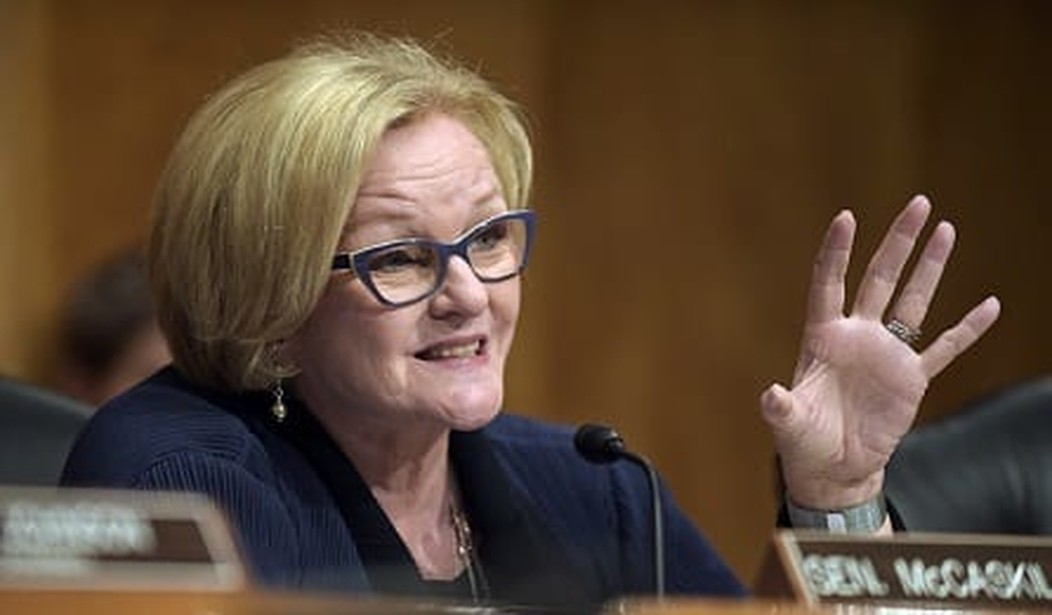


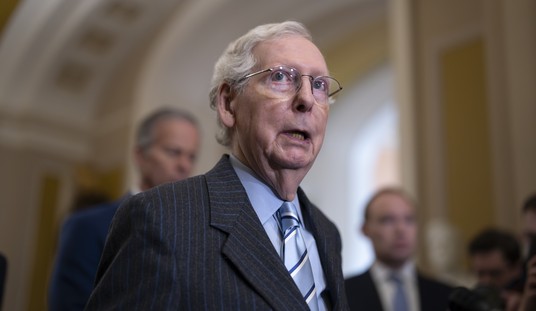

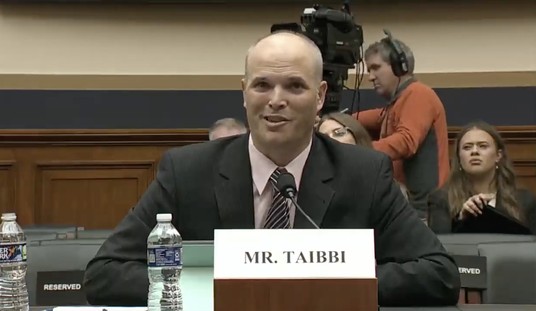

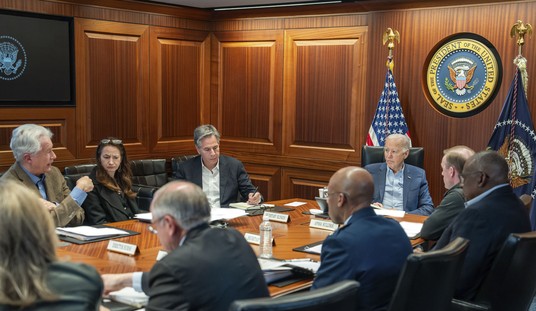


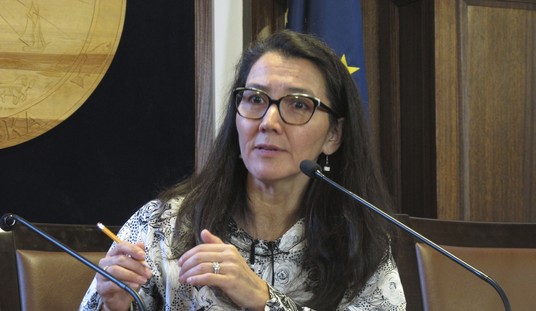




Join the conversation as a VIP Member